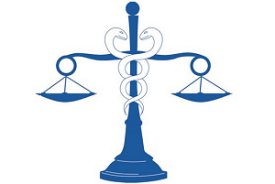 “All we have to decide is what to do with the time that is given us,” wrote J.R.R. Tolkien in The Fellowship of the Ring.
“All we have to decide is what to do with the time that is given us,” wrote J.R.R. Tolkien in The Fellowship of the Ring.
But, rarely do we know for sure how much time may be available. So, making end-of-life decisions for ourselves or our loved ones is seldom simple and sometimes excruciating.
If a patient has signed an advance directive, laying out end-of-life preferences regarding care, that will help guide decision-making. But even with an advance directive, it can still be difficult to know what to do.
Should treatment progress even if the patient may be left seriously impaired or in pain? Should the patient remain in an intensive care unit or moved to hospice care? Should a ventilator remain in place or be removed?
Doctors will generally help guide these difficult decisions based on their best judgement and experience. They often try to do everything possible to save a patient; that’s how they’ve been trained. But sometimes that may not be the route the family thinks best. Other times, it is the doctors who say they have done all they can, but the family insists more is needed.
Who is right and how to decide are among the thorny questions that come before hospital ethics committees. Never heard of one? You probably aren’t alone. Hospital ethics committees grew up in the 1970’s and 1980’s in response to questions about use of life-sustaining medical technologies such as cardio-pulmonary resuscitation equipment and mechanical ventilators. Famous court cases, including the heart-breaking ones of Karen Ann Quinlan, Nancy Cruzan and later Terri Schiavo—young women in persistent vegetative states—propelled the issues of life and death into public consciousness on our television sets and even triggered national political debates.
Their cases achieved notoriety, even though the situations were intensely private, family matters. They also demonstrated how and why early intervention from medical ethicists might have helped resolve the disputes at the patients’ bedsides rather than in the courts.
Today, most U.S. hospitals have ethics committees made up of representatives from the hospital, community and the public. They typically include doctors, nurses, social workers, religious leaders, community representatives, lawyers and others. Their role is to advise—not dictate—the best route of action when patients, doctors, family members, hospital administrators and others are unable to agree on the best course of action.
Medical personnel are usually familiar with the workings of their hospital’s ethics committee. But patients and families often are not. They may not even know, or be represented, when their case is discussed with the ethics committee.
Of course, families should be advised and involved in the process. They may even be the ones to ask for the ethics consultation.
Ruth Levy Guyer, a medical ethicist, educator and author, is a community representative on her local hospital’s ethics committee in Providence, RI. Here’s how she says a consult works: “We hear the story from the person who asked for the consult, and we learn about the perspectives and concerns of all of the stakeholders. What’s the medical situation? What are the social issues? What are the areas of moral distress? And what religious, legal, economic or political issues might be part of the mix? We discuss the conflicts and consider possible resolutions.”
She says the committee considers ethical principles in evaluating each story: How can the autonomy of the of patients, doctors and others involved in care be respected? For example, patients or their surrogates should be allowed to say what will happen to their bodies. But they cannot demand medical treatments that are known to be inappropriate or ineffective. How can harms be avoided and the most good be achieved? What is fair in terms of allocating limited resources? These are not easy questions, to be sure.
Ethics committees are often called upon to help when patients have not expressed in writing their medical wishes and have not designated persons to speak on their behalf should they lose the capacity to speak for themselves.
The take-home lesson, Guyer says, is for people to have discussions—called “The Conversation”—with their family members well ahead of the time when a medical crisis occurs and make sure that they have written advance directives in place. She also recommends that communities proactively help people think about the issues and what their wishes might be when medical emergencies arise. Getting practice thinking about complex medical issues is crucial for preparing people to make decisions when they face real moral issues at the bedside.
Guyer counsels, “Surely all of us will face weighty medical ethics issues at some point in our lives, whether for ourselves or for our family members. And just as a runner would not think of running a marathon without training, so everyone could benefit from learning about and practicing techniques for making medical ethics decisions way ahead of the time when the big ethical quandaries come along.”
To request an ethics consultation in the hospital, you can call the operator and ask to be connected to a consultant, or you can speak to a doctor, nurse or patient advocate. After all, deciding “what to do with the time that is given” is often the most important decision of all. And you may need all the help you can get with that.

Leave a Reply